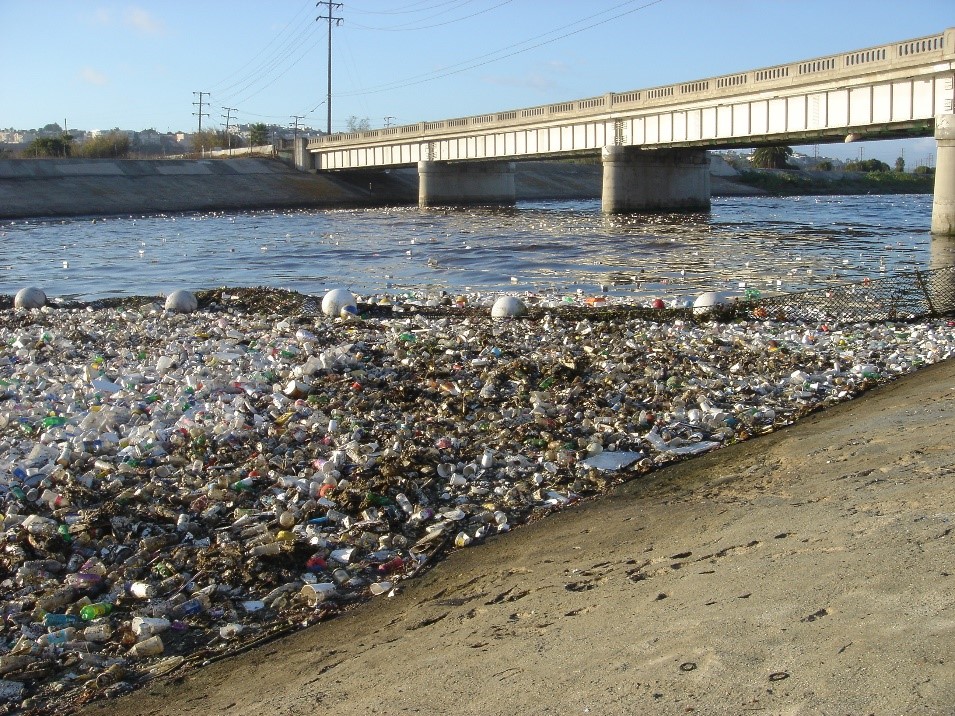Berkeley, CA (May 6, 2020) — In a move that’s straight out of the playbook used by Big Oil, Big Pharma, and Big Tobacco, the defendants in an environmental lawsuit against Big Plastic recently filed a notice to move the case to federal court. Standing its ground, the plaintiff, Earth Island Institute, is fighting back, arguing that the state court, where the suit was originally filed, is the proper venue for the case.

Mouth of the Los Angeles River, Long Beach, California, by Bill McDonald, Algalita Foundation
Earth Island Institute, represented by Cotchett, Pitre & McCarthy, filed the lawsuit on February 26 in California state court under California law against a number of major food, beverage, and consumer goods companies, including Nestle, Pepsico, and Clorox, for the misinformation they spread about the recyclability of their plastic packaging, and for polluting California’s waterways and coasts with millions of tons of plastic packaging.
The lawsuit is based on the public’s rights under California law to seek compensation and equitable relief for the harms alleged in the complaint. And yet, the motion filed in early May by the named defendants tries to remove the case to federal court, claiming that the case involves federal law. In making their arguments, the defendants attempt to reframe the case as one that seeks to halt and regulate all production and dissemination of plastic around the world. This characterization is untrue and, if successful, will cause significant delay in reaching the merits of the case.
“This move is straight out of the same playbook used by Big Oil, Big Pharma, and Big Tobacco,” said Sumona Majumdar, general counsel for Earth Island Institute. “Over and over again, these multinational corporations use procedural tactics and far-fetched legal theories in an attempt to deprive litigants of their state law claims and to delay consideration of the merits. We have faith though that our case will be remanded back to state court, where it belongs.”
Earth Island Institute filed its motion to remand on May 1. The motion explains why federal courts do not have jurisdiction over this matter and why state court is the proper venue. The defendants have until June 1, 2020, to respond.
Through this lawsuit, Earth Island is seeking, among other things, to recover the significant resources it expends to prevent and mitigate the effects of plastic pollution on humans, wildlife, oceans, and waterways in California, where the impacts are particularly acute. Earth Island has filed this case in its own right and on behalf of the following sponsored projects:
Filed complaint available here.